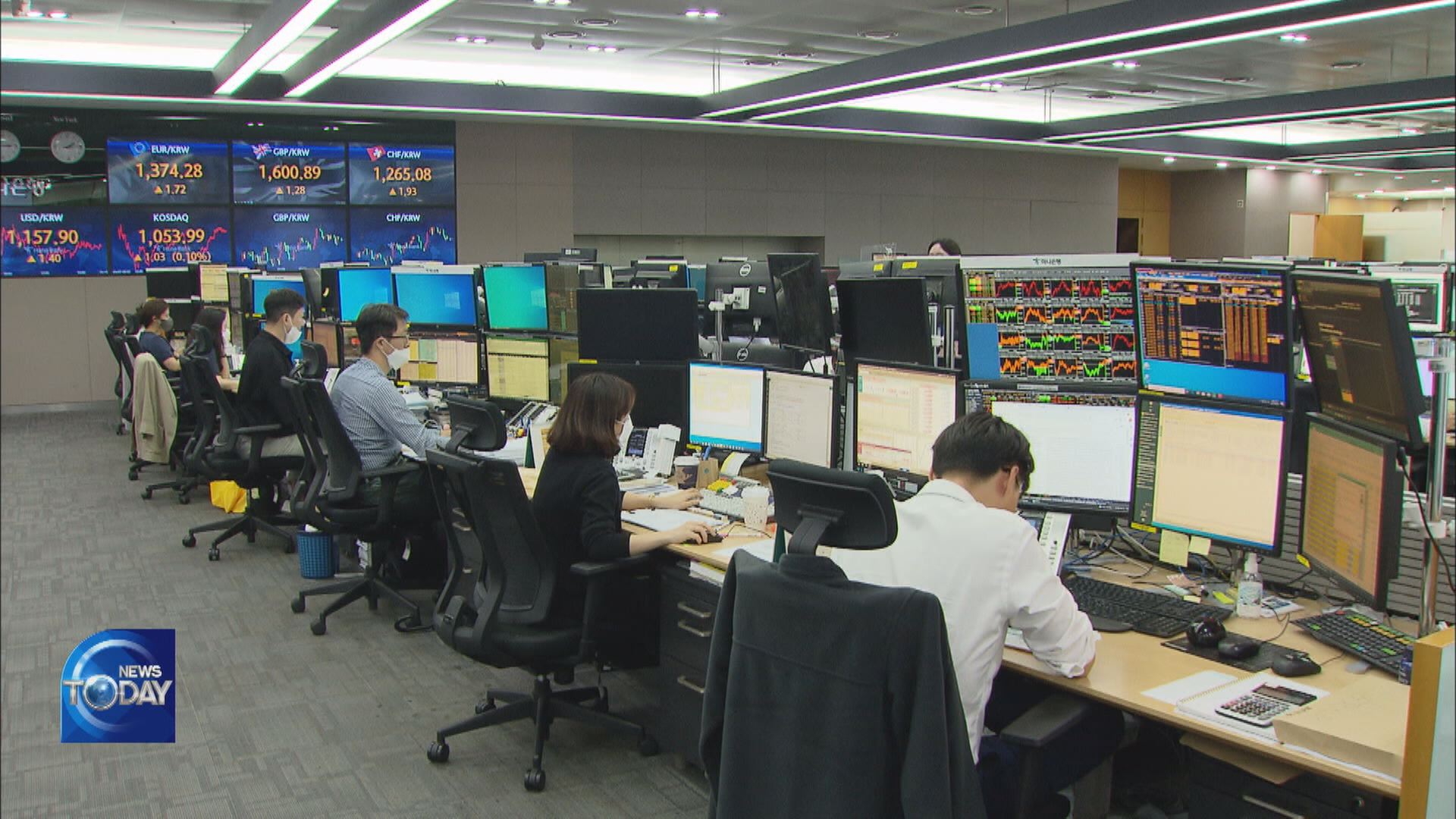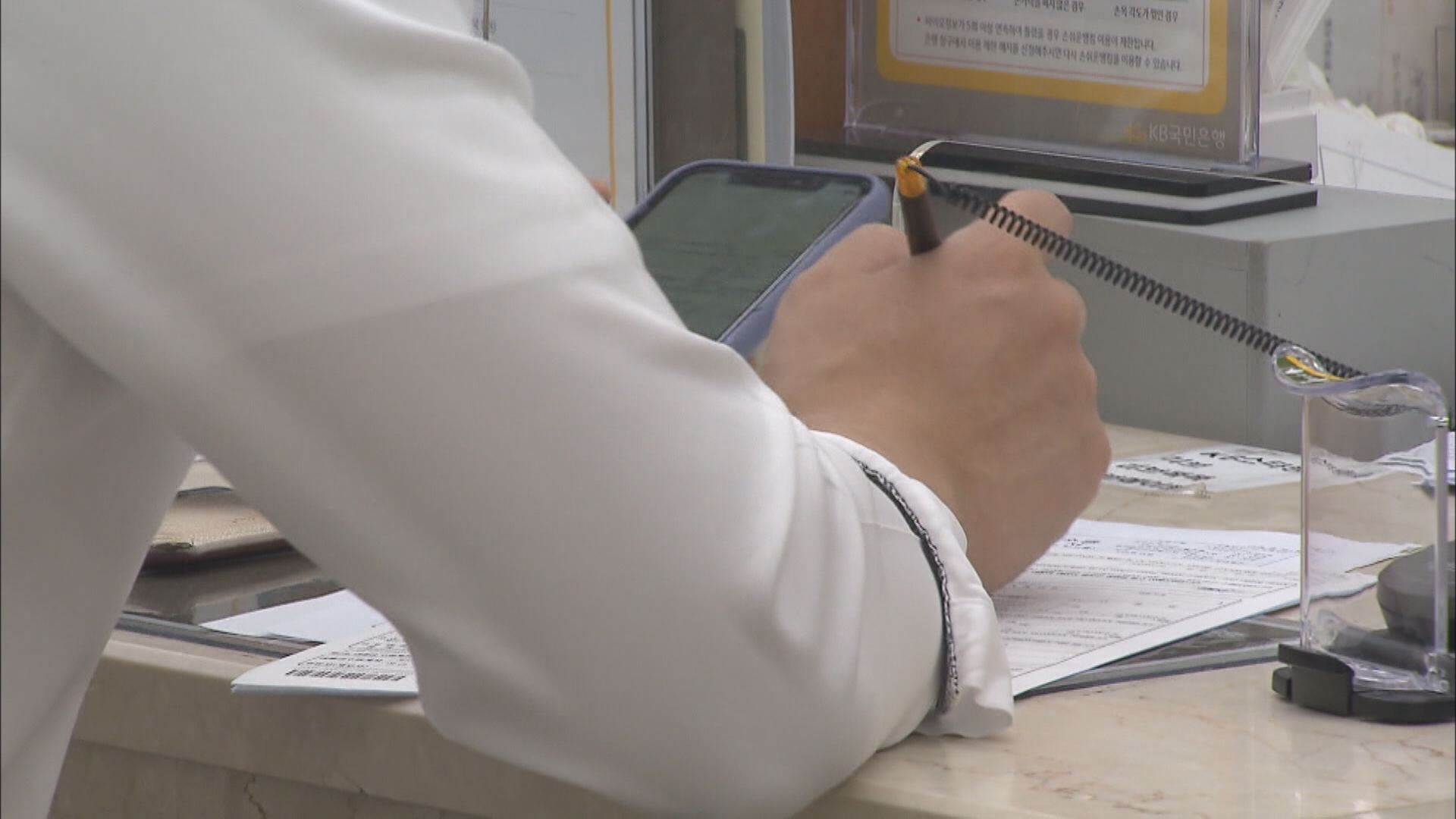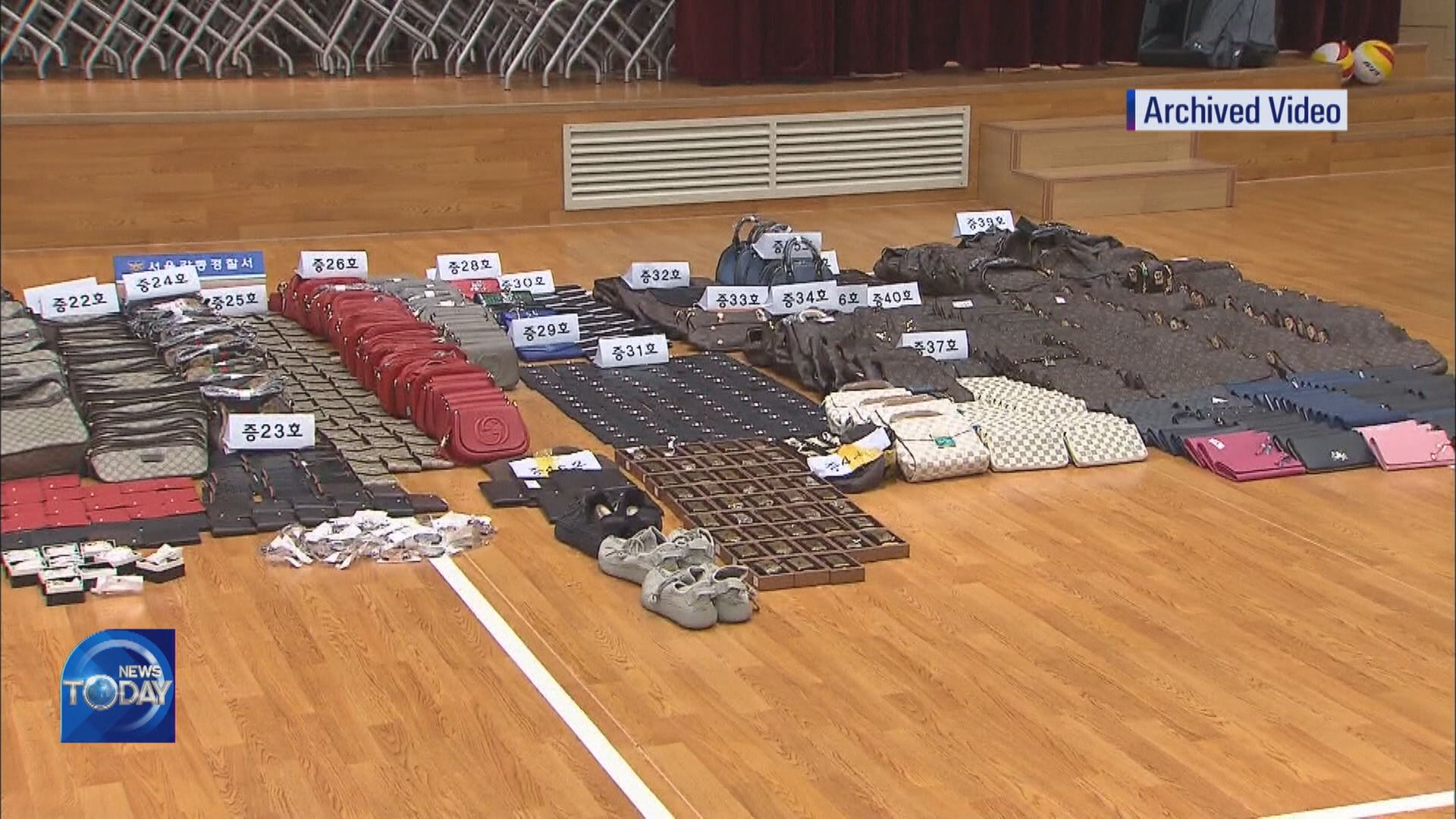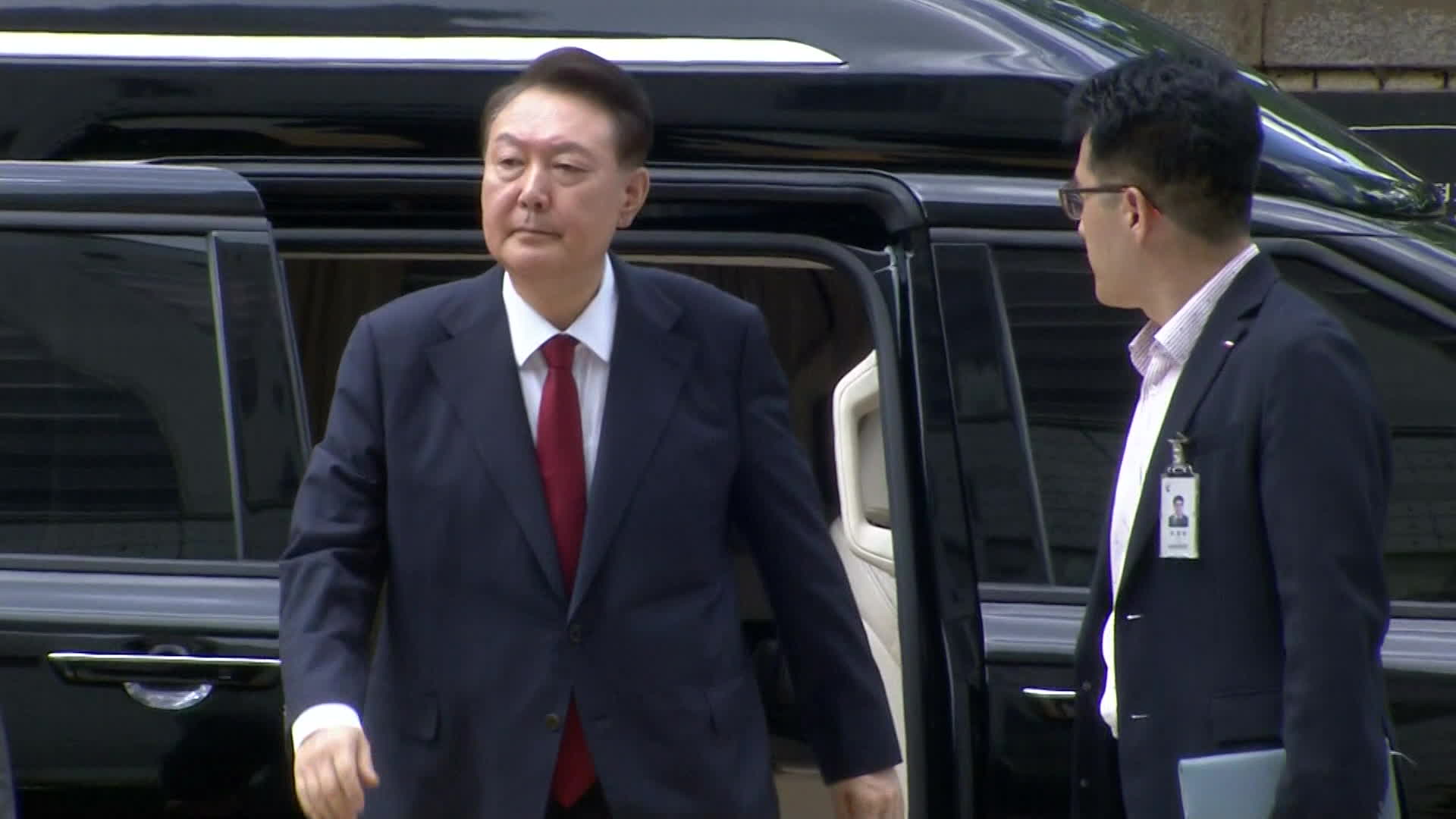SOAR IN WON-DOLLAR EXCHANGE RATE
입력 2021.10.12 (15:38)
수정 2021.10.12 (16:46)
읽어주기 기능은 크롬기반의
브라우저에서만 사용하실 수 있습니다.
[Anchor Lead]
The won-dollar exchange rate has soared to the highest level in 15 months on inflation fears and signs of economic austerity measures in the U.S. Import prices will inevitably spike if both materials prices and the U.S. currency value surge.
[Pkg]
On October 8, the Korean won recorded 1,194.6 won against the greenback. It's the highest level in 15 months. What's particularly noteworthy is that the exchange rate has surged more than 18 won in just two weeks.
[Soundbite] Hong Nam-ki(Minister of Finance(Oct. 6, Parliamentary Audit)) : "The foreign exchange rate is almost 1,200 won against the dollar. We are closely monitoring the situation."
The rise is being attributed to inflation fears and signs of economic austerity measures in the U.S. Inflationary pressure, which began from the prices of raw materials, has pushed up interest rates on U.S. treasury bonds. The U.S. Federal Reserve is also likely to start tapering, or gradually slow the purchases of securities and bonds, as soon as next month. The Korean currency is losing its value as a result of the strengthening U.S. dollar. One of the destabilizing factors is the financial crisis at the Chinese Evergrande Group. Its possible bankruptcy becomes an issue on every bond interest maturity date. The foreign exchange rate also impacts consumer prices. As the weaker Korean won pushes import prices higher, the already rising consumer prices can spike further.
[Soundbite] Oh Chang-seop(Hyundai Motor Securities) : "As international raw materials prices rise, there is more pressure on consumer prices and inflation. The won-to-dollar exchange rate could put pressure on consumer prices by sending import prices higher."
A weakening Korean currency can also have a negative impact on the domestic stock market, resulting in greater losses for foreign investors. Experts say if the strengthening greenback is combined with slowing business revenues, foreigners could start leaving the Korean stock market sooner.
The won-dollar exchange rate has soared to the highest level in 15 months on inflation fears and signs of economic austerity measures in the U.S. Import prices will inevitably spike if both materials prices and the U.S. currency value surge.
[Pkg]
On October 8, the Korean won recorded 1,194.6 won against the greenback. It's the highest level in 15 months. What's particularly noteworthy is that the exchange rate has surged more than 18 won in just two weeks.
[Soundbite] Hong Nam-ki(Minister of Finance(Oct. 6, Parliamentary Audit)) : "The foreign exchange rate is almost 1,200 won against the dollar. We are closely monitoring the situation."
The rise is being attributed to inflation fears and signs of economic austerity measures in the U.S. Inflationary pressure, which began from the prices of raw materials, has pushed up interest rates on U.S. treasury bonds. The U.S. Federal Reserve is also likely to start tapering, or gradually slow the purchases of securities and bonds, as soon as next month. The Korean currency is losing its value as a result of the strengthening U.S. dollar. One of the destabilizing factors is the financial crisis at the Chinese Evergrande Group. Its possible bankruptcy becomes an issue on every bond interest maturity date. The foreign exchange rate also impacts consumer prices. As the weaker Korean won pushes import prices higher, the already rising consumer prices can spike further.
[Soundbite] Oh Chang-seop(Hyundai Motor Securities) : "As international raw materials prices rise, there is more pressure on consumer prices and inflation. The won-to-dollar exchange rate could put pressure on consumer prices by sending import prices higher."
A weakening Korean currency can also have a negative impact on the domestic stock market, resulting in greater losses for foreign investors. Experts say if the strengthening greenback is combined with slowing business revenues, foreigners could start leaving the Korean stock market sooner.
■ 제보하기
▷ 카카오톡 : 'KBS제보' 검색, 채널 추가
▷ 전화 : 02-781-1234, 4444
▷ 이메일 : kbs1234@kbs.co.kr
▷ 유튜브, 네이버, 카카오에서도 KBS뉴스를 구독해주세요!
- SOAR IN WON-DOLLAR EXCHANGE RATE
-
- 입력 2021-10-12 15:38:45
- 수정2021-10-12 16:46:39

[Anchor Lead]
The won-dollar exchange rate has soared to the highest level in 15 months on inflation fears and signs of economic austerity measures in the U.S. Import prices will inevitably spike if both materials prices and the U.S. currency value surge.
[Pkg]
On October 8, the Korean won recorded 1,194.6 won against the greenback. It's the highest level in 15 months. What's particularly noteworthy is that the exchange rate has surged more than 18 won in just two weeks.
[Soundbite] Hong Nam-ki(Minister of Finance(Oct. 6, Parliamentary Audit)) : "The foreign exchange rate is almost 1,200 won against the dollar. We are closely monitoring the situation."
The rise is being attributed to inflation fears and signs of economic austerity measures in the U.S. Inflationary pressure, which began from the prices of raw materials, has pushed up interest rates on U.S. treasury bonds. The U.S. Federal Reserve is also likely to start tapering, or gradually slow the purchases of securities and bonds, as soon as next month. The Korean currency is losing its value as a result of the strengthening U.S. dollar. One of the destabilizing factors is the financial crisis at the Chinese Evergrande Group. Its possible bankruptcy becomes an issue on every bond interest maturity date. The foreign exchange rate also impacts consumer prices. As the weaker Korean won pushes import prices higher, the already rising consumer prices can spike further.
[Soundbite] Oh Chang-seop(Hyundai Motor Securities) : "As international raw materials prices rise, there is more pressure on consumer prices and inflation. The won-to-dollar exchange rate could put pressure on consumer prices by sending import prices higher."
A weakening Korean currency can also have a negative impact on the domestic stock market, resulting in greater losses for foreign investors. Experts say if the strengthening greenback is combined with slowing business revenues, foreigners could start leaving the Korean stock market sooner.
The won-dollar exchange rate has soared to the highest level in 15 months on inflation fears and signs of economic austerity measures in the U.S. Import prices will inevitably spike if both materials prices and the U.S. currency value surge.
[Pkg]
On October 8, the Korean won recorded 1,194.6 won against the greenback. It's the highest level in 15 months. What's particularly noteworthy is that the exchange rate has surged more than 18 won in just two weeks.
[Soundbite] Hong Nam-ki(Minister of Finance(Oct. 6, Parliamentary Audit)) : "The foreign exchange rate is almost 1,200 won against the dollar. We are closely monitoring the situation."
The rise is being attributed to inflation fears and signs of economic austerity measures in the U.S. Inflationary pressure, which began from the prices of raw materials, has pushed up interest rates on U.S. treasury bonds. The U.S. Federal Reserve is also likely to start tapering, or gradually slow the purchases of securities and bonds, as soon as next month. The Korean currency is losing its value as a result of the strengthening U.S. dollar. One of the destabilizing factors is the financial crisis at the Chinese Evergrande Group. Its possible bankruptcy becomes an issue on every bond interest maturity date. The foreign exchange rate also impacts consumer prices. As the weaker Korean won pushes import prices higher, the already rising consumer prices can spike further.
[Soundbite] Oh Chang-seop(Hyundai Motor Securities) : "As international raw materials prices rise, there is more pressure on consumer prices and inflation. The won-to-dollar exchange rate could put pressure on consumer prices by sending import prices higher."
A weakening Korean currency can also have a negative impact on the domestic stock market, resulting in greater losses for foreign investors. Experts say if the strengthening greenback is combined with slowing business revenues, foreigners could start leaving the Korean stock market sooner.
이 기사가 좋으셨다면
-
좋아요
0
-
응원해요
0
-
후속 원해요
0












![[속보] 충남 금산군 금강서 물놀이하던 20대 4명 <br>실종…소방당국 수색 중](/data/news/2025/07/09/20250709_5MWZIH.jpg)

![[단독] ‘윤상현 또 다른 장소’ 추가 압수수색…휴대전화 여전히 ‘미제출’](/data/layer/904/2025/07/20250709_ATAI51.jpg)


이 기사에 대한 의견을 남겨주세요.